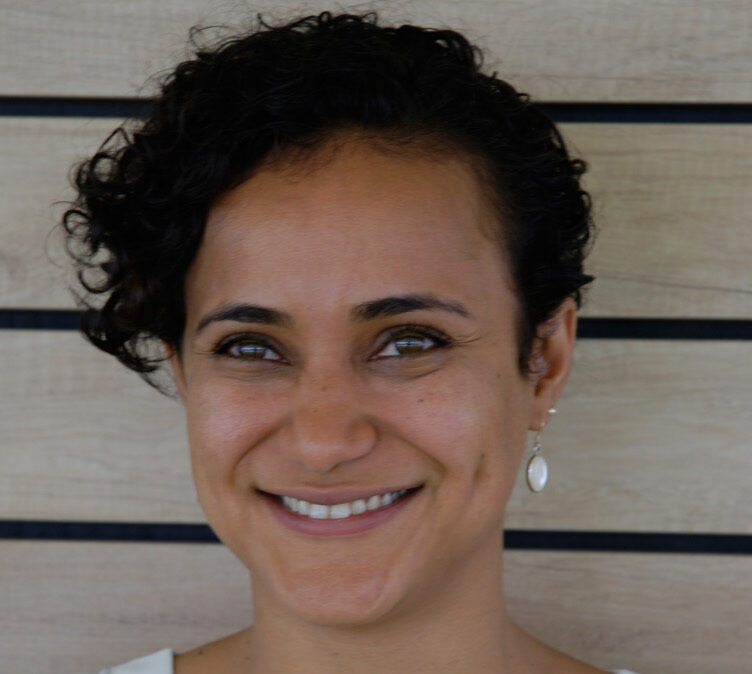Nadine Laguette: inspiring and well-inspired
With its young team specializing in inflammatory immune mechanisms at the Institute of Molecular Genetics in Montpellier (IGMM), Nadine Laguette has enjoyed numerous successes. In ten years, she has made several key discoveries and won no fewer than three prestigious European ERC grants. At the end of 2022, she received the Simone and Cino Del Duca Foundation Cancer Research Prize from the Institut de France.

From the AIDS virus to inflammatory reactions, Nadine Laguette knows how to find research topics at the heart of current medical concerns. Her postdoctoral work at the Institute of Human Genetics (IGH) in Montpellier already led to a key discovery about the interaction between HIV and the immune system. More specifically, the biologist identified the SAMHD1 protein involved in blocking infection, which is targeted by viral proteins to prevent the cell from defending itself. This result, published in Nature in 2011, "a highly cited work, my first major discovery," as she herself acknowledges, marked the beginning of her research career. As proof of her talent, the young virologist was recruited by the CNRS the following year to work at the IGH.
Three years later, another discovery opened up his research to inflammatory immune mechanisms, a rapidly expanding field of research (DNA damage repair machinery and HIV escape from innate immune sensing). "While continuing to observe the modes of action of viral proteins, we realized that certain proteins targeted by the virus—those that repair damage to DNA strands—are also involved in the inflammatory response following viral infection," explains Nadine Laguette. On the strength of these results, she obtained initial funding from the European Research Council (ERC), which enabled her to set up her own research team at the IGH in 2015. In addition to viral infections, the team is also looking at the inflammatory mechanisms associated with autoimmune diseases and cancers.
Zebrafish
The scientist then developed an original approach combining work on single cells and observation of living animals. "For example, we worked on zebrafish, which have the advantage of being transparent, so we could directly observe the recruitment of immune cells at the tumor site." The result: the team showed that severe inflammation contributes to a more effective response against the tumor, as immune cells accumulate in the inflamed area (2016). Acute inflammation is becoming a serious avenue for application in immunotherapy. Nadine Laguette then successfully embarked on a new ERC Proof of Concept and two pre-maturation programs "to bring fundamental results to the patient."
"Another important discovery made by my team was to show that proteins involved in inflammatory mechanisms are also involved in lipid regulation," explains the researcher. These results once again open up interesting therapeutic avenues, "by taking lipid metabolism into account in the treatment of inflammation." " And once again, the tireless researcher has applied for and been awarded a new ERC Consolidator grant in 2022, which she will use to expand her research team at the Institute of Molecular Genetics in Montpellier (IGMM).
Mauritius
Faced with the scale of the work accomplished, Nadine Laguette seems unimpressed. She admits to having finished writing her ERC a month early, in several versions! Pointing to the top of her head, she confides,"These white hairs are the result of waiting for a response." She doesn't go easy on her team either: "I adapt to different rhythms." So what if one person expects almost daily feedback on their work, another prefers weekly meetings, and a third, who is very independent, won't ask for anything for a month? "This availability is a heavy burden, but it allows the team to function well," she acknowledges.
A quick search on the internet reveals that Nadine Laguette has received various awards. But she hasn't said anything about it. The researcher, who is originally from Mauritius, has also been invited to share her success with others, to inspire young people in the south to pursue similar careers. "I get a lot of requests from journalists who want to showcase an example of success to young Mauritians," says Laguette, who is not unhappy about going to the island this year during the school holidays when there will be fewer requests. She left Mauritius after graduating from high school to study in London. It was a well-considered choice, as she explains today: "I was interested in English universities because they offer highly specialized courses from the first year, in this case molecular biology." The city also offers "a multicultural and inclusive atmosphere" where she easily found her place. She then moved to mainland France to study for her master's degree at the Institut Cochin. Recently, the inspirational figure was invited by the African Union to promote Africa-Europe collaboration in order to encourage African researchers to apply for European projects.
